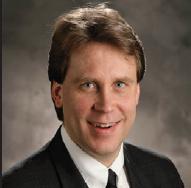
By Paul Louis Metzger
Multnomah University Professor
New Wine Skins Ministry
Recently, I corresponded with Dr. Steve Baker, a medical doctor who oversees New Heights Clinic in Vancouver, Washington. We discussed the Barna Group’s findings that many young people are leaving churches today because they perceive them as antagonistic to science. Dr. Baker provided a very striking and thought-provoking response that can help churches bridge the gap. In Steve’s estimation, churches can help foster a vital connection between faith and science in people’s minds and hearts through providing medical services and assistance to people in need. Here’s what Steve said:
In my experience at New Heights Clinic, working with hundreds of young med students, RN students and medical residents, when these young people are engaged in a faith community, actively involved in service through unreasonable love to the underserved, the faith and science piece comes easily, or better, flows easily. In other words, I have seen repeatedly that young adults will adopt the views of the healthy, service-oriented faith community with which they are involved. Leading out with intellectual arguments for why faith and science can go together won’t gain much traction in their culture, because for them it is not a knowledge or information issue at all, but rather a plausibility issue. The views of the historic Christian faith will only seem plausible these days in the context of a vibrant, sacrificial faith community. Kind of the original intent of Jesus anyway, right?
Some readers may respond by saying “All well and good, but what does one do regarding such matters as abortion, including what to do when the pregnant mother faces the possibility of death, and end of life care, including those who are in a vegetative state? Christians differ among themselves on these matters; add to that Buddhists, Hindus and a host of other diverse faith practitioners. How does one adjudicate between various practical responses without calling upon some theoretical engagement of faith in relation to science?”
Pastors can draw from the expertise of scientists, biblical scholars and theologians in their churches and communities, as they seek to provide pastoral ethical care for such practical considerations. Still, Dr. Baker’s point still stands. Theory certainly has its place in adjudicating between various ethical options, but there is no substitute for holistic clinical engagement. After all, we all appreciate doctors with good bedside manners. Hopefully, we also appreciate Christians who integrate their faith with science in a holistic manner.
With the previous point in mind, it is worth noting that churches and other Christian institutions constructed hospitals originally because of what they believed. There was no divorce between faith and action, or faith and science. They were partners for the common good. Steve and New Heights Clinic practice what New Heights Church believes and preaches. They are going a long way to dispel the myth that faith and science do not belong together. They can be partners for the common good.
Please join New Wine, New Wineskins for its conference, “Church and Science: Partners for the Common Good,” on April 16-23, 2016 in the Greater Portland, Oregon area. Details forthcoming.
Disclaimer: Articles featured on Oregon Report are the creation, responsibility and opinion of the authoring individual or organization which is featured at the top of every article.


